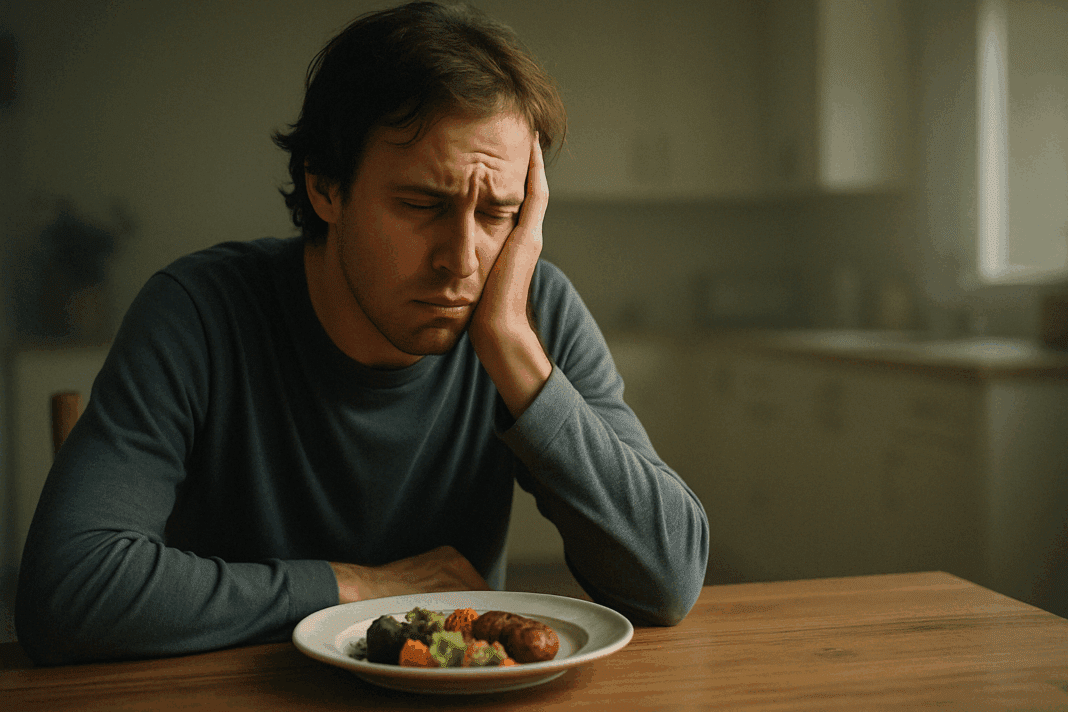Hunger is a universal experience, but not everyone realizes that the discomfort of an empty stomach can extend beyond a simple growl or pang. For many, prolonged periods without food don’t just lead to irritability or fatigue—they can cause physical symptoms that are surprisingly intense, including nausea, dizziness, or even vomiting. If you’ve ever wondered, “Does not eating cause nausea?” or found yourself feeling hungry and nauseous at the same time, you’re not alone. These symptoms are more common than one might think, and they offer an important glimpse into the complex relationship between nutrition, physiology, and digestive health. In this article, we explore the scientific reasons why people often feel nauseous from not eating, how hunger can lead to queasiness, and what you can do to manage or prevent these uncomfortable episodes.
You may also like: How to Stop Emotional Eating and Regain Control: Mindful Nutrition Strategies That Support a Healthier Lifestyle
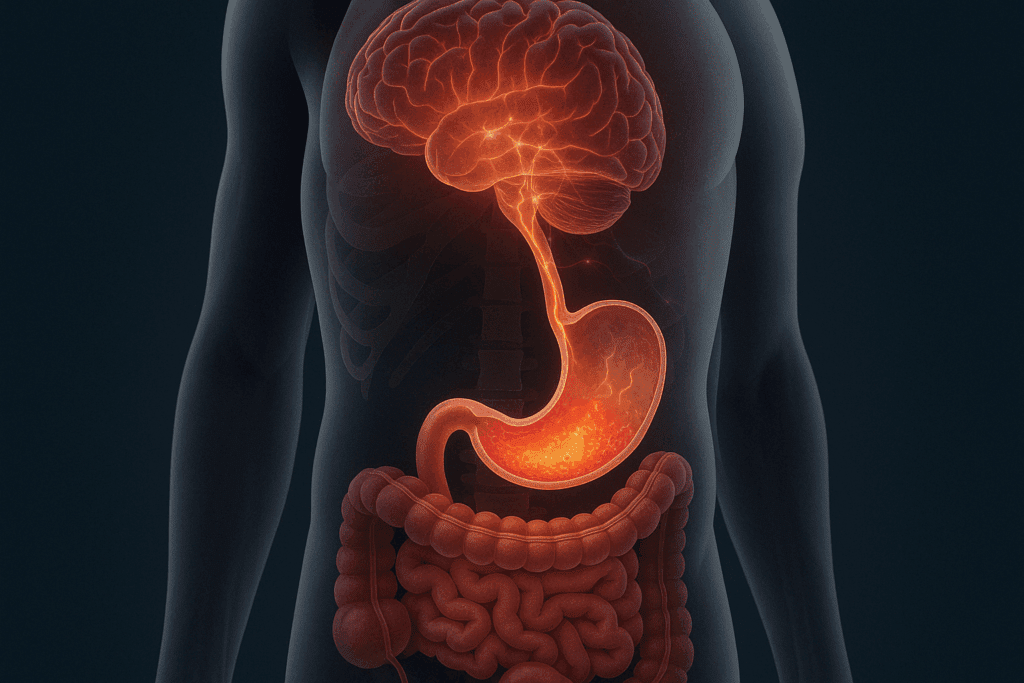
Understanding Why Not Eating Can Make You Feel Nauseous
To understand why someone may feel nauseous from not eating, it’s important to explore what happens within the body during periods of fasting or food deprivation. When you skip meals or go for extended hours without eating, your blood sugar levels begin to drop. This decline in glucose can disrupt the balance your body relies on to maintain stable energy and hormonal regulation. As blood sugar dips too low, a condition called hypoglycemia may set in, leading to symptoms such as shakiness, fatigue, and in some cases, nausea.
There are hormonal shifts that occur as well. The hormone ghrelin, often referred to as the “hunger hormone,” rises sharply during fasting. Elevated ghrelin levels not only trigger hunger but may also stimulate regions of the brain associated with nausea and vomiting. This overlap in neural pathways explains why you might find yourself asking, “Can not eating make you nauseous?” or even, “Can you throw up from not eating?” In certain cases, yes, especially if additional factors like dehydration or gastrointestinal sensitivity are involved.
On a digestive level, the stomach continues to produce acid even when there is no food to process. This accumulation of gastric acid can irritate the stomach lining, contributing to a queasy or unsettled feeling. If this imbalance persists, it’s not unusual to experience what many refer to as nausea from not eating, a form of functional dyspepsia that emerges from the mismatch between acid production and the absence of food.
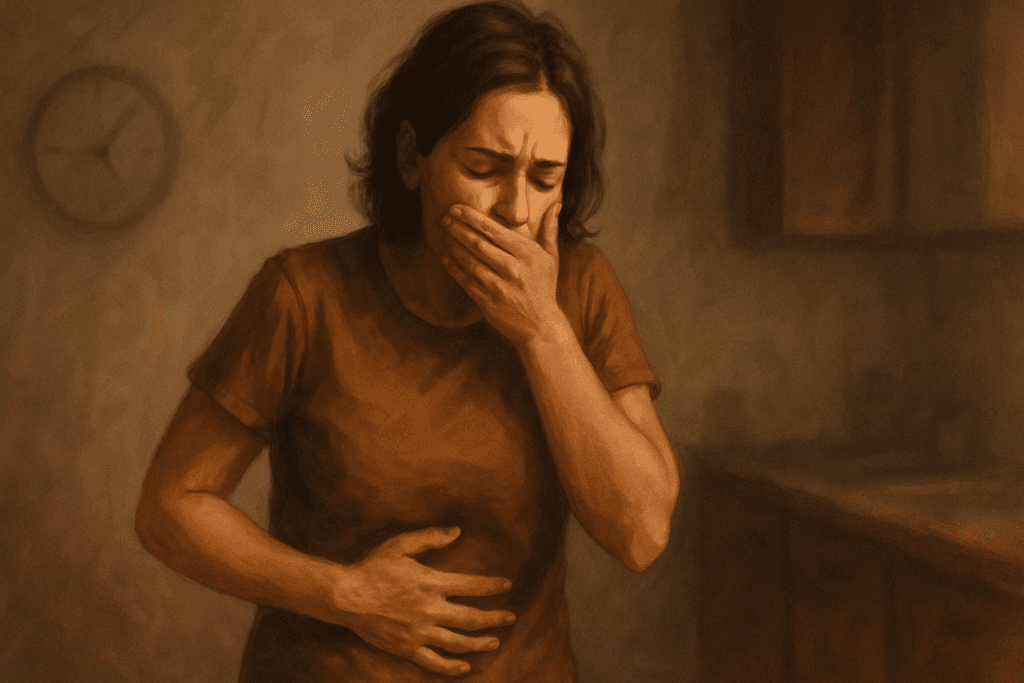
Hunger and Nausea at the Same Time: A Common Paradox
It might seem counterintuitive to feel both hunger and nausea simultaneously, but it is actually a fairly common experience. The body’s signals for hunger and discomfort can overlap, creating a confusing blend of sensations. For those who are feeling hungry and nauseous at the same time and not pregnant, the cause is often physiological, not hormonal. It’s a paradox rooted in the body’s dual response to food scarcity: on the one hand, demanding nourishment, and on the other, responding to its absence with stress-induced symptoms.
When the digestive system remains empty for extended periods, the gut may become more sensitive to motion, acid, and even emotional stress. This hypersensitivity can manifest as nausea, particularly in individuals prone to anxiety or gastrointestinal disorders. Meanwhile, the brain is sending increasingly urgent signals to eat, pushing the person into a cycle where they are both compelled to eat and too nauseated to do so. This dynamic might make you wonder, “Can not eating cause nausea or even vomiting?” The answer is yes, especially when physical hunger reaches a tipping point.
In many cases, individuals may also report that the nausea improves shortly after eating something small. This quick resolution supports the idea that the nausea was not due to illness, but a direct result of low blood sugar, excess stomach acid, or a heightened stress response to fasting.
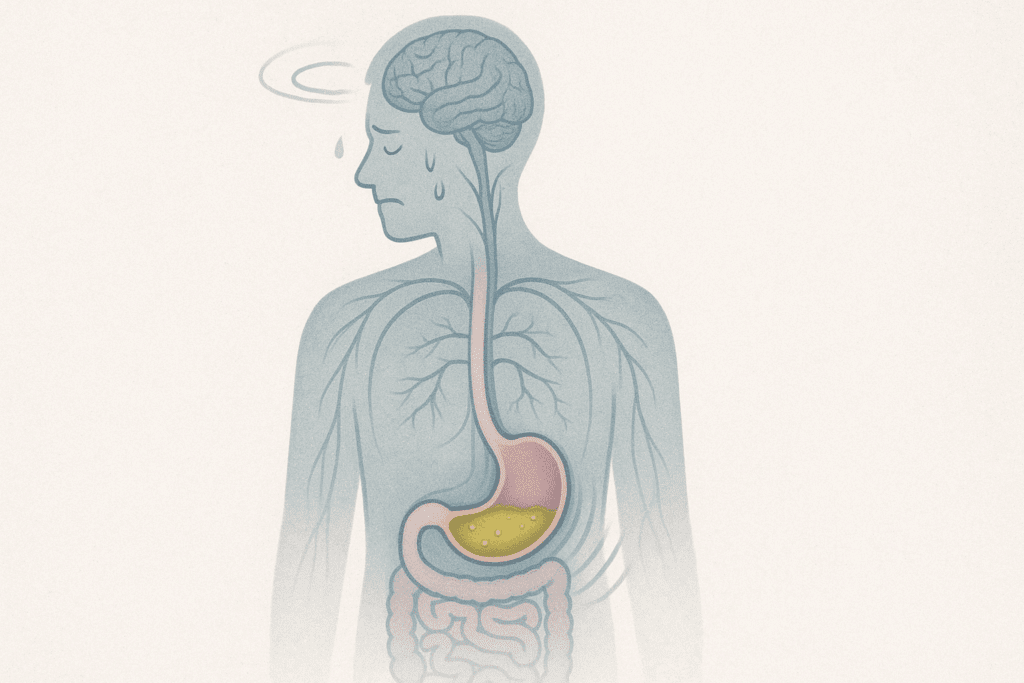
The Science Behind Vomiting from Not Eating
The act of vomiting is the body’s way of forcefully emptying the contents of the stomach, typically in response to toxins, infections, or severe gastrointestinal irritation. Yet, can you vomit from not eating? While less common than nausea, vomiting from not eating is possible in certain contexts, particularly when the body has reached an extreme state of imbalance.
Throwing up from not eating is often associated with extended fasting or disrupted eating patterns. When the digestive tract is left without input for a prolonged period, bile can accumulate in the stomach. Without food to absorb this bile or to buffer its effects, the buildup can become irritative enough to trigger vomiting. Furthermore, individuals who have sensitive stomachs or pre-existing gastrointestinal issues may be especially susceptible.
There is also a psychological component. High stress, low blood sugar, and physical weakness may converge to cause a vasovagal response—a nervous system reaction that can include dizziness, sweating, and ultimately, vomiting. Thus, asking, “Can you puke from not eating?” is not as far-fetched as it might initially seem. This reaction is the body’s desperate signal that it needs nourishment, rest, and rebalancing.
How to Distinguish Hunger-Related Nausea from Illness
It’s important to differentiate between nausea that stems from hunger and nausea that may be a sign of a more serious medical issue. One of the hallmark traits of hunger-induced nausea is that it often improves after eating. If you find yourself wondering, “Does not eating make you nauseous?” and then notice that a small snack seems to alleviate the discomfort, this is a strong indicator that food deprivation was the underlying cause.
Illness-related nausea, on the other hand, tends to persist regardless of food intake and may be accompanied by symptoms such as fever, diarrhea, or severe abdominal pain. In contrast, nausea but hungry is often a subtler, milder sensation that lifts when caloric and nutritional needs are met. That said, if you’re experiencing nausea frequently, even after eating well, it could point to gastrointestinal disorders such as gastritis, acid reflux, or gastroparesis.
For those dealing with chronic hunger-related nausea, especially if you’re feeling hungry and nauseous at the same time and not pregnant, it’s worth examining your eating habits. Are you skipping meals regularly? Are there long gaps between meals that lead to hypoglycemic symptoms? Adjusting your routine may help you better regulate your energy levels and prevent the cycle of nausea and hunger from recurring.
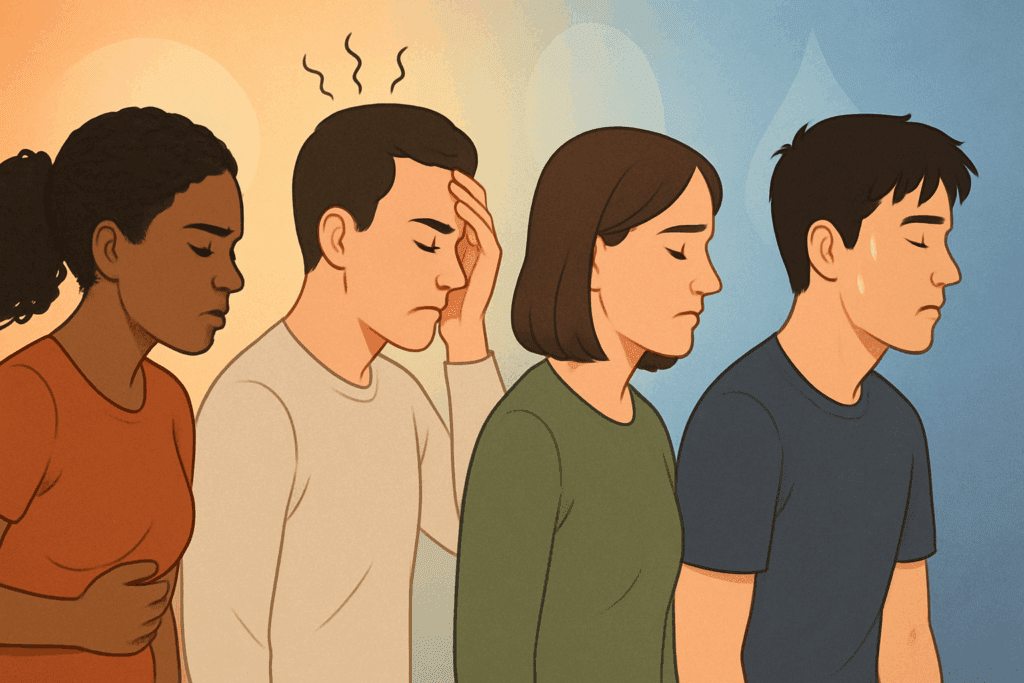
Why Some People Are More Prone to Nausea from Not Eating
While anyone can experience nausea from not eating, certain individuals are more susceptible due to a variety of factors. People with a history of gastrointestinal disorders, such as irritable bowel syndrome or acid reflux, may find their symptoms triggered by fasting or irregular eating patterns. Additionally, those with anxiety or chronic stress often have heightened gut sensitivity, making them more vulnerable to nausea when their bodies are under pressure.
Metabolic differences also play a role. Some people naturally have faster metabolisms, meaning their bodies burn through fuel more quickly. For these individuals, even a short period without food can prompt the question: “Can not eating make you vomit or feel extremely nauseated?” The answer is more likely yes. Their blood sugar levels drop faster, and their hormonal responses to hunger are more intense.
Age and hormonal fluctuations are further contributing factors. Adolescents, pregnant women, and individuals undergoing major hormonal changes may experience more pronounced hunger-related symptoms. Even among healthy adults, being dehydrated or physically overexerted while fasting can make the body more reactive, pushing mild nausea into full-blown vomiting.

Strategies to Prevent Nausea from Not Eating
Preventing nausea from not eating often involves adopting more consistent and balanced eating habits. This doesn’t necessarily mean eating large meals, but it does mean ensuring that the body receives regular nourishment to maintain stable blood sugar and hormone levels. Incorporating protein-rich snacks and complex carbohydrates throughout the day can help buffer against extreme drops in energy.
For individuals who frequently ask, “How to stop nausea from not eating?” the answer often lies in proactive planning. Avoiding long periods of fasting, especially during times of high physical or emotional stress, is a key strategy. Carrying small snacks such as nuts, whole-grain crackers, or a protein bar can be especially helpful for those with busy schedules or unpredictable routines.
Staying hydrated is also essential. Sometimes what feels like hunger-induced nausea is actually the result of dehydration. Water helps dilute stomach acid and keeps digestive processes moving smoothly. Including electrolyte-rich fluids like coconut water or low-sugar sports drinks may provide an extra layer of support.
Can You Get Nausea from Not Eating Even When You’re Not Hungry?
Interestingly, some individuals experience nausea from not eating even in the absence of strong hunger cues. This might seem confusing, but it often has to do with the body’s need for steady glucose levels and hormonal rhythm, rather than a psychological sense of hunger. So while you might not feel hungry in the traditional sense, the physical effects of not eating can still catch up to you in the form of nausea or weakness.
In these cases, the question becomes, “Can not eating cause nausea even when appetite is low?” and the answer remains yes. The body depends on regular input, not only for energy but also to maintain digestive equilibrium. People with blunted hunger signals due to medication, mental health conditions, or medical treatments like chemotherapy may not feel the need to eat until nausea sets in. Learning to recognize this pattern is important in preventing more severe outcomes like vomiting or fatigue.
Creating a meal schedule or setting reminders to eat small portions throughout the day can help manage this issue. Even light, easy-to-digest foods like applesauce, yogurt, or toast can be effective in curbing nausea that results from delayed eating.
The Emotional and Mental Toll of Hunger-Related Nausea
Experiencing nausea due to hunger isn’t just physically uncomfortable—it can also take a toll on mental and emotional well-being. The cycle of feeling nauseated and being unable to eat can lead to anxiety around meals, particularly for those already managing eating disorders, chronic illnesses, or stressful work environments. These individuals may begin to associate food with discomfort, creating an avoidance pattern that exacerbates the very symptoms they’re trying to escape.
People experiencing frequent hunger and nausea at the same time may begin to dread mealtimes, worrying that eating will worsen their condition. This can lead to delayed meals or skipped eating altogether, intensifying both nausea and stress. The fear of throwing up from not eating, even when based on prior experience, can trigger anticipatory nausea—a psychosomatic reaction where the mere thought of food causes queasiness.
Addressing the mental component involves more than just changing dietary habits. Cognitive-behavioral therapy, mindfulness, and support from healthcare providers can be crucial tools in breaking the anxiety-nausea cycle. Creating a calm, pleasant eating environment and setting realistic goals around nourishment can also encourage more positive associations with food and reduce the likelihood of nausea.
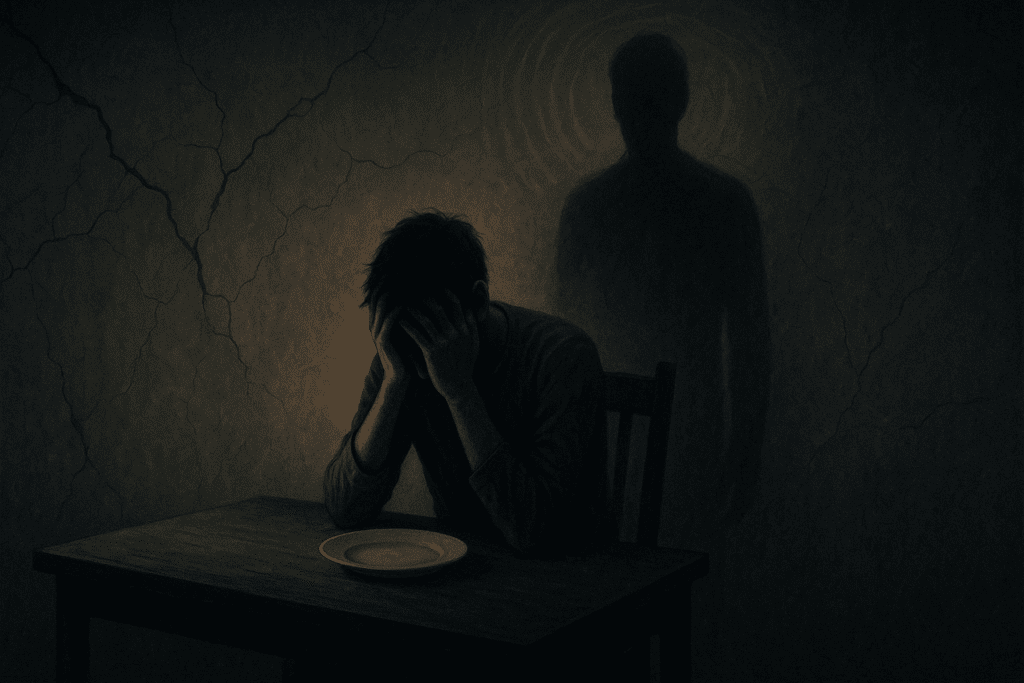
When to Seek Medical Help for Persistent Symptoms
While occasional nausea due to hunger is typically benign, there are times when professional evaluation is necessary. If you’re asking yourself questions like, “Does not eating make you throw up regularly?” or “Can not eating make you vomit even when I try to eat a balanced diet?” and these symptoms persist, it may signal an underlying medical issue. Conditions such as gastroparesis, ulcers, or endocrine disorders can all present with similar symptoms but require specialized care.
A good rule of thumb is to monitor the frequency, duration, and severity of your nausea. If you are vomiting frequently, losing weight unintentionally, or struggling to maintain hydration, these are red flags that shouldn’t be ignored. Similarly, if you consistently feel nauseated but hungry, and no amount of dietary adjustment seems to help, a consultation with a gastroenterologist may be warranted.
Documenting your eating habits, symptom patterns, and potential triggers can be invaluable during these evaluations. Medical professionals can use this information to rule out more serious conditions and guide you toward appropriate treatment, which may include dietary therapy, medication, or lifestyle modifications.
Frequently Asked Questions: Hunger and Nausea
Why does not eating cause nausea in some people while others seem unaffected?
While it’s true that not everyone experiences nausea from not eating, those who do are often more sensitive to fluctuations in blood sugar and stress hormones. People with faster metabolisms, lower body fat, or underlying digestive conditions may feel the effects of fasting more acutely. In contrast, individuals with more metabolic flexibility can go longer without food before experiencing any physical discomfort. That said, even those who appear unaffected may still be experiencing subtle hormonal or metabolic shifts. In cases where does not eating cause nausea, the body’s internal chemistry is signaling a need for equilibrium, even if that response varies greatly from person to person.
Can you throw up from not eating even if you’ve only skipped one meal?
Yes, it is possible to throw up from not eating, even after missing a single meal, especially if you’re particularly sensitive to dips in blood sugar. When blood glucose drops rapidly, the resulting hormonal surge can impact the gastrointestinal system and trigger nausea or even vomiting. Individuals with anxiety or a history of disordered eating may be more susceptible to this reaction. While it’s more common to feel nauseous from not eating over a prolonged period, acute reactions can still happen when compounded by other stressors such as dehydration, physical exertion, or lack of sleep. If you’re wondering, “can you vomit from not eating after just a few hours?” the answer lies in your personal physiology and current health status.
Why does hunger and nausea at the same time feel more intense in the morning?
Morning nausea linked to hunger often stems from overnight fasting and a natural rise in cortisol, which can stimulate stomach acid production. When you wake up after eight or more hours without food, your body is essentially in a mild fasted state. For some, this can cause a surge of stomach acid that irritates the lining, making them feel nauseous even though they’re also hungry. This duality creates the phenomenon of being hungry and nauseous at the same time. Morning routines that include hydrating first thing and eating a small snack can help regulate this response.
Can not eating make you nauseous even if you don’t feel hungry?
Absolutely. The absence of hunger doesn’t mean your body doesn’t need nourishment. Many people suppress hunger cues due to stress, distraction, or underlying medical conditions, and in those cases, nausea may be the first sign that something is off. When people report feeling nausea but hungry isn’t a prominent symptom, it may reflect hormonal disruptions or altered signaling between the gut and brain. If you’re asking, “can not eating cause nausea without obvious hunger?” the answer often involves understanding your body’s more subtle distress signals and learning to respond to them proactively.
What are some hidden triggers that intensify nausea from not eating?
While blood sugar and stomach acid are primary culprits, other factors can exacerbate nausea when you haven’t eaten. Dehydration is a big one—when you’re not eating, you may also be neglecting fluid intake, which increases gastrointestinal discomfort. Emotional stress is another powerful amplifier; high cortisol levels can both suppress appetite and make the stomach more reactive. Caffeine consumption on an empty stomach, often part of many people’s morning routines, is also a known trigger. For those wondering, “does not eating make you nauseous more when stressed or dehydrated?”—the interplay of these variables significantly increases your risk.
Can you puke from not eating if you’re also exercising intensely?
Yes, intense exercise on an empty stomach can increase the likelihood of nausea or vomiting. Physical activity uses up remaining glucose stores, and if no replenishment occurs, the body can become overwhelmed by low blood sugar and lactic acid buildup. Combined with the physical jostling of the digestive organs, this can make people feel intensely nauseous or even result in throwing up from not eating beforehand. Athletes or active individuals often discover that small pre-workout snacks help reduce this risk. So if you’re asking, “can not eating make you vomit during physical activity?”—especially under stress—it certainly can.
How can you tell the difference between nausea from not eating and a digestive disorder?
Differentiating between these types of nausea often involves timing and resolution. Nausea from not eating typically improves after food intake, while digestive disorders might not resolve even after eating and may include other symptoms like bloating, chronic reflux, or irregular bowel movements. If you consistently feel hungry and nauseous at the same time but eating doesn’t offer relief, a deeper gastrointestinal issue might be at play. It’s also important to track whether certain foods or eating patterns exacerbate symptoms, as these can offer clues. Asking, “does not eating make you throw up consistently despite dietary changes?” warrants further medical investigation.
What’s the long-term impact of frequently feeling nauseous from not eating?
Repeated episodes of nausea from not eating can lead to disrupted eating patterns and increased stress around food, which may evolve into more serious issues like Avoidant/Restrictive Food Intake Disorder (ARFID). Over time, this pattern can also affect metabolism and energy regulation, leading to fatigue, immune suppression, and mood instability. Constantly navigating feelings of being nauseous from not eating can create a psychological barrier to regular nourishment, especially if one begins to associate food with discomfort. Left unchecked, this could reduce overall quality of life and increase risk for chronic nutritional deficiencies. If you’re frequently asking, “how to stop nausea from not eating?” it’s essential to break the cycle through consistent meal planning and stress management.
Are some people more genetically prone to nausea caused by not eating?
Emerging research suggests that genetics may influence how the body responds to fasting and hunger. People with variations in genes related to ghrelin sensitivity or serotonin regulation may experience more intense nausea or queasiness during fasting states. Additionally, those with a family history of migraines or gastrointestinal disorders often report similar symptoms. If you find yourself frequently asking, “can not eating make you nauseous even when others are fine?” your unique genetic and neurological makeup could be part of the answer. Personalized nutrition approaches, guided by genetic testing, may help such individuals manage their symptoms more effectively.
What’s the best quick fix if you’re feeling hungry and nauseous at the same time and not pregnant?
When you’re feeling hungry and nauseous at the same time not pregnant, a practical first step is to hydrate with a small glass of water or an electrolyte-rich beverage. Follow that with a light, easily digestible snack such as a banana, a few plain crackers, or a spoonful of nut butter. These foods offer quick energy without overwhelming the digestive system. Avoid caffeine and heavy fats in this window, as they can intensify nausea. And if this happens often, consider asking yourself, “can you get nausea from not eating because your meal timing is too erratic?” Adjusting to more predictable eating intervals may be the best long-term solution.
Key Takeaways: How to Recognize and Manage Nausea from Not Eating
Understanding the connection between eating patterns and nausea is crucial for maintaining both physical and emotional wellness. Many people underestimate the impact of skipped meals or delayed eating, only to find themselves suddenly overwhelmed by nausea or even vomiting. The question of whether you can get nausea from not eating is not just a theoretical one—it’s a real, physiological phenomenon that can affect anyone, especially those with fast metabolisms, underlying health conditions, or irregular schedules.
Learning how to stop nausea from not eating involves proactive, balanced self-care: eating consistently, staying hydrated, managing stress, and listening to your body’s early cues. Whether you’re feeling hungry and nauseous at the same time or wondering if nausea but hungry is something to be concerned about, remember that your body is communicating its needs in the only language it knows. Paying attention and responding with thoughtful care is the most effective way to restore balance and avoid future discomfort.
Was this article helpful? Don’t let it stop with you. Share it right now with someone who needs to see it—whether it’s a friend, a colleague, or your whole network. And if staying ahead on this topic matters to you, subscribe to this publication for the most up-to-date information. You’ll get the latest insights delivered straight to you—no searching, no missing out.

